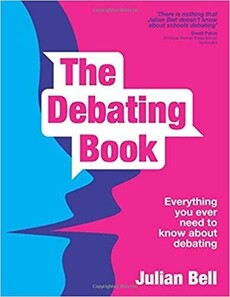
posted 29th October 2023

You fancy cheese for lunch. Fortunately, there's an excellent cheese shop just two minutes' walk from your house. It has a wonderful range of delicious cheeses. But then this blessing becomes a problem. As you look round the shelves, you are overwhelmed by the choice available. Which is it to be? The soft, melting Brie? Some springy Gouda? That crumbly Red Leicester? The rich sharp tang of Stilton? Or play safe with good old dependable English Cheddar?
One solution to the problem would be to buy a block of all the cheeses available and eat them all for lunch. But this approach would create two further problems. A/ It would be very expensive. B/ It would make you very sick. So you're going to have to decide. Luckily, help is at hand. The cheese shop owner has seen more than his fair share of indecisive customers in his time, all wanting to experience the taste of his cheeses so they can know which one will hit the spot today. So he has put small plates on the counter with tiny chunks of cheese which you can help yourself to. After a few nibbles all becomes clear; today is a Red Leicester day. Lunch is saved, without excessive strain on your wallet or your digestive system.
When my daughter was little, we used to call these samples in shops 'free snacks'. However, free samples can actually be a very canny sales ploy. Once you've had a mouthful of Red Leicester, you want more. Debaters need to be salespeople as much as shopkeepers do, selling their case, persuading the audience to buy it. One part of their sales job is convincing their listeners that the world as it is is unsatisfactory (proposition) / doesn't need changing (opposition), and that the future world which the measure proposes is one you want to sign up to (proposition) / will be worse (opposition). Hearing a present or future world described in general, abstract terms can be as hard to digest as a whole wheel of Gouda. So, reach for the technique known as 'chunking'. Take a small chunk of that world and offer it up for your hearers to taste, in the hope that this will entice them to buy the whole lot.
Here's an example. You're arguing for the motion This house would introduce a 100% inheritance tax, with a starting rate of £1 million (i.e. you would be allowed to leave, on your death, up to £1 million to your partner, children, or whoever else you wanted, but anything above that sum would go to the government). You want to convince your listeners that the present world, where inheritance tax is much lower (currently it is 40%, with a starting rate of £375,000), is unjust, and that a future world with higher inheritance tax would be fairer. You could wheel out a lot of statistics about the unequal spread of wealth and how it affects life chances; you could make a general point of principle about how it is unfair that someone should become wealthy without having worked for it. But these generalities can be hard to swallow. Instead, chunk it, like this.
'Imagine Anna and Bella. They've been best friends since they were five.They have a lot in common. Both are only children; both lost their mothers when they were young, and have been brought up by their fathers. But their fathers are very different. Anna's father is a billionaire, with houses all over the world; Bella's dad is a bus driver, and Bella grew up in a small rented flat. Both Anna and Bella work hard at school, and get into a good university to study medicine. But halfway through their third year, their fathers die within months of each other.'
'With the vast fortune Anna inherits, she can pay off her student debt, buy a house, and easily pay the tuition fees for the rest of the seven years of study required to become a doctor. Bella, though, gets next to nothing. She would have been a brilliant doctor. But she can't afford the tuition fees; she has student debt to pay off; she can barely afford anywhere to live. She has to abandon her medical training and move to a poorer part of the country, where opportunities are fewer. She ends up in a series of dead end jobs which waste her talents.'
'Is this fair? Anna's dad may have earned his wealth; Anna didn't. Why should she have more opportunities than Bella, just because of the luck of who her father was? Why should Bella's talents be wasted, and the rest of us cheated of all she could have done for us as a doctor, just because of the luck of who her father was? Imagine a world where Anna and Bella started life on an equal basis; where they both had their uni fees and their medical training fees paid from the money raised from taxes on inherited wealth, so that both of them can fulfil their promise, to the benefit of us all. Wouldn't that be a fairer, better world?'
You've made a lot of points there about how the tax system you propose is both fairer and more effective. But you've done it in a more digestible way, by taking just one small chunk of the world (present and future) as you see it, and inviting your audience to taste it. Anna and Bella's story doesn't actually prove anything - it is illustrative, not conclusive. But it does make your arguments much easier to understand. Chunking can sell both cheese and arguments.



